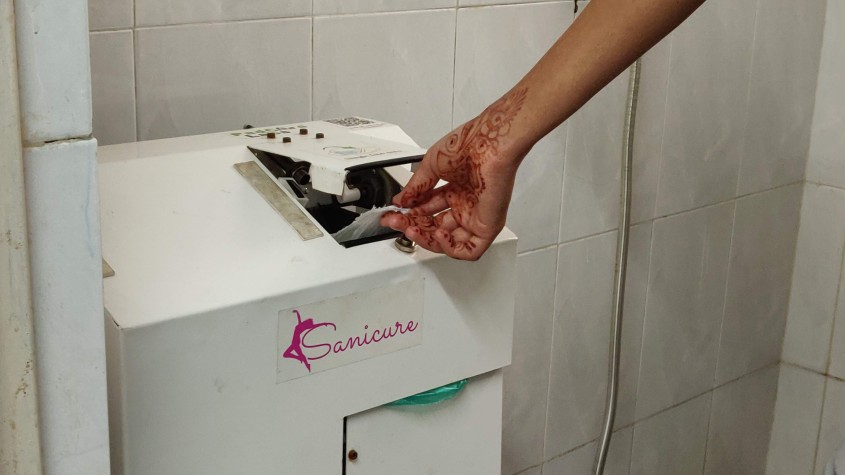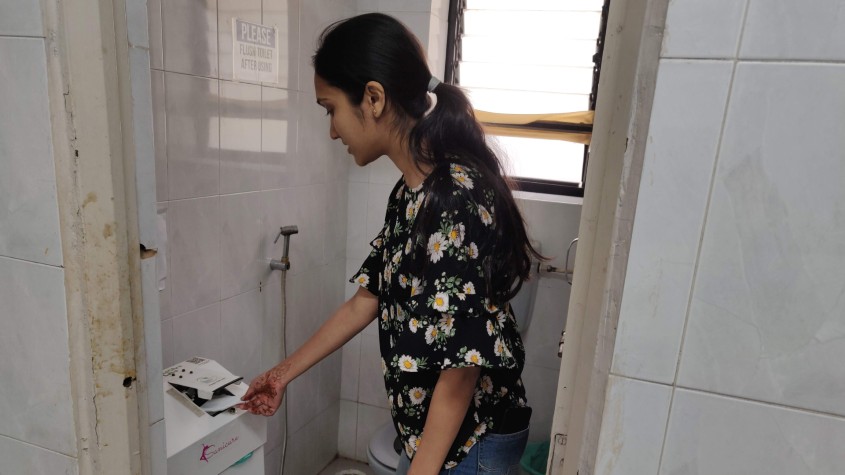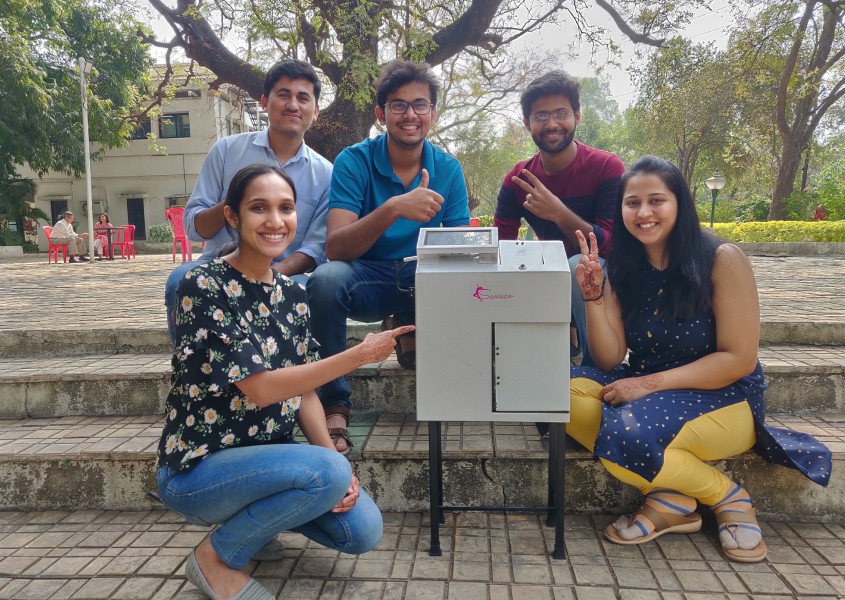Women in Green: Tackling Hygiene Waste through Innovation
March 6, 2020
By Lidia Kleshchenko, Associate Program Officer, Global Challenges Division, WIPO
To celebrate International Women’s Day, WIPO GREEN interviewed Sarika Kulkarni, a female inventor and a design lead at PadCare Labs, a start-up company focusing on climate-friendly menstrual hygiene management in India.
A short bio of Sarika
Sarika is a mechanical engineer and industrial designer. With over six years in design, she is currently a design lead at PadCare Labs in Pune, India, where she is passionate about using human-centered design to contribute to women's needs. Sarika is married and is a working mother of a 2-year-old boy.
My advice to young women is to believe in themselves and to believe that what they do matters for science and for society.
Sarika Kulkarni
Find out more about PadCare Labs technology on the WIPO GREEN database, and register to contact the inventors directly.

What drew you to the field of green innovation and sustainable sanitary products management?
My journey in the field of feminine hygiene began during my graduate studies in industrial design at Philadelphia University (currently known as Thomas Jefferson University). I collaborated with Johnson & Johnson for a university project, and learned a lot about feminine hygiene. The product resulting from that collaboration was filed for patent application, which of course boosted my confidence. In addition, the topic of menstrual hygiene management (MHM) inspired me, mainly because it is still something of a social and cultural taboo in India, which creates challenges for women. That is why, right after my maternity leave, I moved ahead in this field, with strong support from my mother and family.
What problem does your green technology solve?
Sanitary napkin disposal is a daunting challenge, one that causes health and environmental hazards. Annually, 12 billion sanitary napkins are used in India, of which 98% ends up in waterbodies and landfills. It takes 800 years for a single sanitary napkin to decompose! Moreover, 60% of Indian women face urinary tract infections at least once in their lifetime, with many of the cases provoked by poor menstrual hygiene and waste management. Not to mention that 23% of rural students drop out of school every year due to unavailability of proper disposal facilities in washrooms.
Currently, incineration – or burning – is the most common menstrual hygiene waste management practice. However, this practice carries health and environmental risks and is a long-term economic burden. At PadCare Lab, we developed a safer, greener and more efficient method of sanitary waste disposal, mitigating harmful environmental and social impacts.
How does it work?

Our product SANECO is a safe, accessible and eco-friendly disposal option and recycling system. We use a "5D" (disinfection, decolorization, deodorization, deactivation and disintegration) chemo-mechanical process through witch a used sanitary napkin can be disposed within 30 seconds. The device, which is odorless, colorless and smokeless in operation, can be installed in washrooms and individual cabins. The resulting byproduct can be recycled as fuel or for paper industries.
We are currently in the pre-commercialization stage with five SANECO devices already installed and functioning for pilot testing at girls’ hostels, educational institutes and smart public toilets in Pune – with more on the way.
Are intellectual property rights part of your strategy?
Yes, intellectual property (IP) plays an important role in our start-up company. Our technology is novel and we have submitted a patent application to protect it; at the moment the application is still pending. We have also applied for IP protection on our product, process and design.
How does SANECO empower women?

Women play a major role in maintaining health, hygiene and sanitation – within households and beyond. One of the most crucial jobs in preserving a healthy society is the collection of waste (including menstrual waste) done by waste pickers, a large proportion of whom are women. So, in addition to providing women and girls who menstruate with a safer and cleaner waste management opportunity, SANECO also helps to protect the health of people who work as waste pickers. At PadCare Labs, we work to empower them and allow them to do their job with dignity.
What kind of support do you think women need to be encouraged to innovate?
There are a number of initiatives undertaken by the Indian government to support women entrepreneurs. Programs such as WE hub, Tie Women initiative and She Loves Tech provide a platform for women to promote their technologies, receive mentorship and network. They help us to connect with other tech companies, investors, entrepreneurs and consumers to promote our work. Furthermore, global initiatives like WIPO GREEN are also very useful for supporting growing companies like ours.
However, I believe there is more to be done. With the triple burden of a day job, household work and family care, women who dare to step up and enter the field of green innovation with their own inventions and start-ups need all support they can get. So spreading the programs that improve access to funding for women-led enterprises, provide training and capacity building, organize mentoring and networking, and advocate for women’s leadership can only benefit our society. I also think there should be more campaigns and seminars to educate women on green technology and the opportunities they have to improve their own lives through innovation.
Does the current international discourse on climate change influence green tech companies?
Yes. First of all, the international resonance definitely creates awareness. It also helps us by making information on sustainability norms, future climate-change mitigation actions and market demand more accessible.
The growing commitment to sustainability has also increased the demand for green products and services, and created a variety of new occupations and career paths – from which many women can benefit.
However, there is still a lot to be done. One of the major challenges we are facing, for example, is finding the right investors who are interested in supporting a startup company centered around sustainability and social and environmental impact, rather than based on traditional business models.
What future developments do you envision for PadCare Labs?
We want to allow as many women as possible to benefit from SANECO. We are currently seeking support from companies who would be interested in switching to a greener sanitary waste management approach in their corporate processes. Not only can they be more sustainable this way, but they will also improve the hygiene level of their facilities.
As we begin the third decade of the 21st century, awareness, adoption and support for green technology are increasing. If everyone acts together, carbon negative cities are foreseeable. We at PadCare Labs definitely want to contribute our efforts towards this exciting aim.
What advice would you give to young women with aspirations in green innovation?

Women are strong agents of change and key contributors to climate change mitigation and adaptation programs at local as well as international levels. My advice to young women is to believe in themselves and to believe that what they do matters for science and for society. Be open and outspoken about the challenges you face, but also be realistic. Not everyone will be able to see things from a new perspective or change quickly, and not everyone will support you. If you really want to make a change, deeply believe in yourself and your ability to do amazing things.


